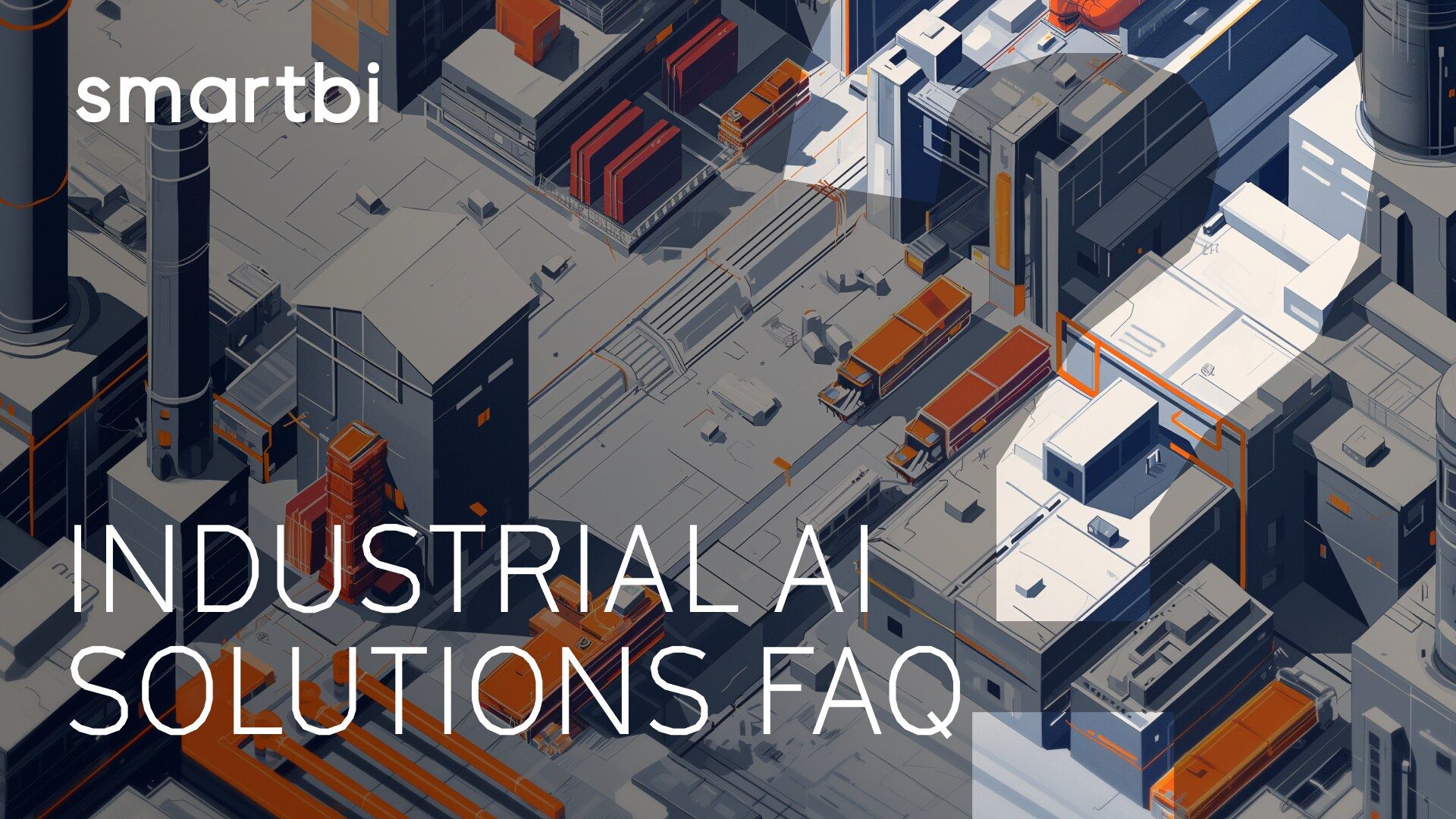
In this blog post, we will explore frequently asked questions about AI implementation that we have come across over the past six years. We'll clarify and provide examples of how quickly an AI solution can pay off, its benefits to industrial companies, and whether your company needs an AI consultant, a customized solution, or a ready-made product. Our tips will help companies make smart decisions and ensure that adopting AI supports the company's long-term goals. Whether you're just considering implementing AI or are already knee-deep into project planning, this blog post will provide you with valuable information and practical advice.
What can AI be used for? What kind of benefits can AI provide for industrial companies?
For industrial companies, AI solutions can bring about significant improvements, and this often comes as a surprise – the technology can be integrated into existing software such as SAP, Oracle, and Azure. By adding 'intelligence' to software and devices, industrial companies can improve the efficiency of production processes, predict equipment maintenance needs, optimize supply chains, and reduce the waste of materials and tools. By introducing more sophisticated 'intelligence' into production lines—for example, machine vision technology—factories can improve the quality inspection process through video and algorithms that identify and correct errors more accurately than humans working in production.
What is the return on investment (ROI) for AI solutions?
AI solutions require an upfront investment that should be recovered quickly. However, an industrial AI solution's return on investment (ROI) varies based on cost, implementation strategies, and overall effectiveness. For instance, employing AI to improve factory production or safety procedures can save millions of euros. In another example, one of our clients reduced a seven-week inspection period to just three days with the help of AI. It's important to note that higher expenses don't always lead to better outcomes; when paired with intelligent strategies, modest investments often yield significant benefits. Generally, the ROI timeframe for an AI solution ranges from 3 to 12 months, depending on the solution implemented.
Does my company need an AI consultant or a customized or ready-made solution? How long does a typical AI project take?
Here's the good news: There is an abundance of options. The not-so-good news: Navigating these options can be extremely time-consuming. The best choice always depends on your company's specific needs, resources, and readiness for AI. If you're uncertain about your requirements or how AI can boost your business, consulting with an AI expert can clarify your objectives and help formulate a strategic approach. If your organization has unique demands that generic solutions cannot meet, a tailored solution might provide the most value, offering specialized know-how and AI expertise your team can rely on. If your company has a data team, developing your solution could be beneficial, especially if you want to keep the knowledge in-house. If, however, you're looking for a cost-effective and quick solution, a ready-made AI product or platform may provide the tools you need with minimal initial investments or extended development time. Having operated as an AI agency for six years, we've observed that projects typically last between 3 to 12 months.
How can I evaluate the quality and readiness of our data for AI implementation?
The question of data readiness never gets old! Ideally, your data should be free of errors and inconsistencies. Having diverse and valid data reduces the risk of biases and ensures the model's viability. It is crucial that the collected data is relevant to your business and accurately reflects the problems the AI solution is intended to solve. In reality, few companies exist in a perfect world where all data is immediately ready for implementation. That's why it is vital to be proactive. Starting the data validation process with an experienced AI agency is a sensible first step. Data from industrial companies is often highly confidential, and access to it may be restricted. In such cases, all methods and solutions should adhere to the 'secure by design' principle from the outset, a standard Smartbi has been committed to since its inception.
What are the first steps in starting an AI project?
For industrial companies, the adoption of AI can often feel overwhelming. There are budgeting, time constraints, and upcoming software updates. At the same time, the volume of data increases, competition intensifies, and the number of tools grows daily. That's why our advice is the following: Start small but start today. Many projects begin by simply making everyday tasks 'intelligent.'
One way to start adopting AI is to quickly test its potential and costs with the help of a professional. Smartbi, with over six years of experience developing tailor-made AI solutions, often initiates projects with industrial AI sprints. This is a two-week program tailored for industrial companies, during which we assess the company's data, analytics, and AI ideas to identify the most important ones. As a result, you will receive an action plan that you can implement immediately.
If you need help identifying benefits or finding a scalable AI solution, we're here to help.
Contact usCould AI be applied to your business case?
Subscribe to the newsletter and learn how AI can solve business challenges.